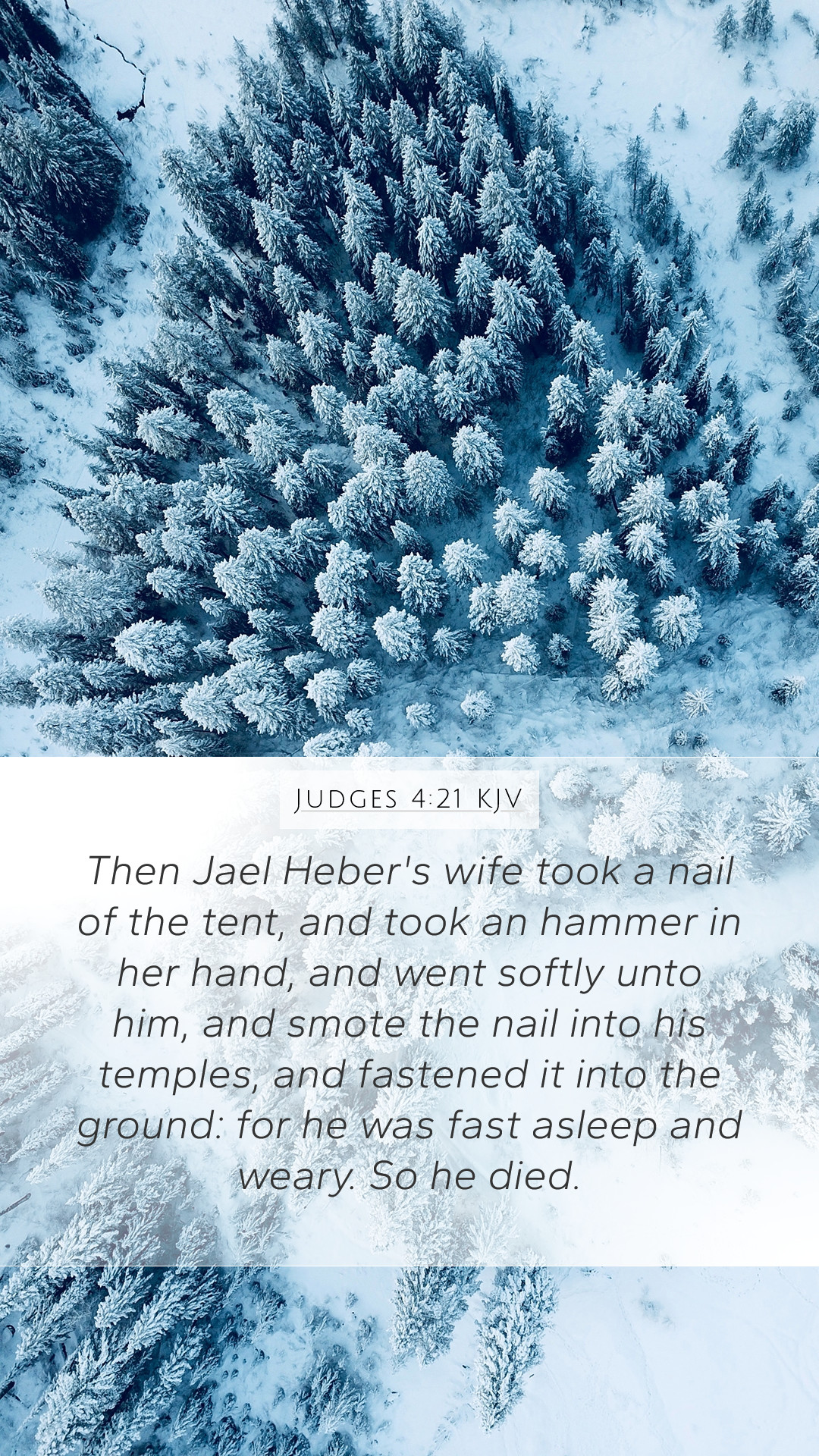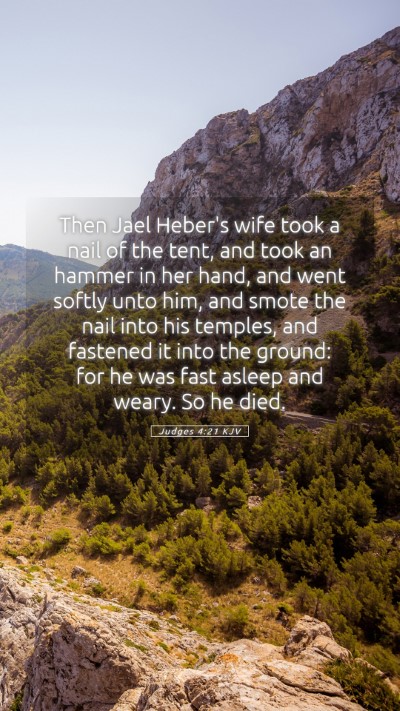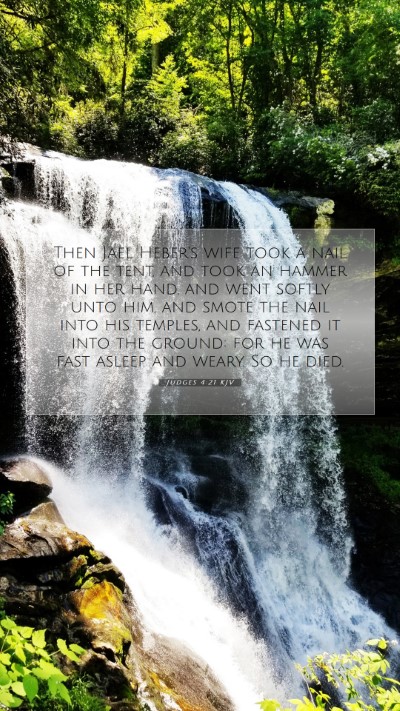Old Testament
Genesis Exodus Leviticus Numbers Deuteronomy Joshua Judges Ruth 1 Samuel 2 Samuel 1 Kings 2 Kings 1 Chronicles 2 Chronicles Ezra Nehemiah Esther Job Psalms Proverbs Ecclesiastes Song of Solomon Isaiah Jeremiah Lamentations Ezekiel Daniel Hosea Joel Amos Obadiah Jonah Micah Nahum Habakkuk Zephaniah Haggai Zechariah MalachiJudges 4:21 Meaning
What is the meaning of Judges 4:21?
Then Jael Heber's wife took a nail of the tent, and took an hammer in her hand, and went softly unto him, and smote the nail into his temples, and fastened it into the ground: for he was fast asleep and weary. So he died.
Judges 4:21 Bible Verse Meaning
Judges 4:21 - Bible Verse Commentary
Judges 4:21 states: “But Jael, Heber's wife, took a nail of the tent, and took a hammer in her hand, and went softly unto him, and smote the nail into his temples, and fastened it into the ground: for he was fast asleep and weary. So he died.”
Understanding the Context
The period of the Judges in Israel was characterized by cycles of oppression and deliverance. Jael, the wife of Heber, plays a crucial role in this narrative, signifying the unexpected ways in which God brings about victory for His people.
Insights from Public Domain Commentaries
-
Matthew Henry:
Matthew Henry emphasizes the role of Jael as a key instrument in God's plan. He interprets her actions as a fulfillment of God's promise to deliver Israel from the oppression of Sisera, the commander of the Canaanite army. Henry notes that Jael's act symbolizes God's sovereignty, stating that true victory often comes through unconventional means.
-
Adam Clarke:
Clarke provides a deeper analysis of the cultural and historical context of this event. He points out that tent pegs were common tools in the households of that time, and Jael's use of one illustrates the idea that God can empower anyone – including women – to accomplish His purposes. Clarke details the brutality of Sisera's defeat, symbolizing the complete subjugation of God's enemies.
-
Albert Barnes:
Barnes focuses on the detail that Sisera was in a vulnerable state when Jael approached him. This serves as a reminder that even the most powerful can be brought low. His commentary points out the irony of a woman defeating a warrior, highlighting the theme of God using the weak to confound the strong.
Biblical Exegesis and Interpretation
The act of Jael can be viewed through various lenses:
- Theological Significance: The event illustrates God's providence. God orchestrated circumstances so that victory over the oppressors would not come from Israel's soldiers but through a woman in her tent.
- Cultural Context: In the ancient Near East, the household was often seen as a woman's domain. Jael using domestic tools for a lethal purpose challenges traditional gender roles.
- Moral Lessons: Jael's actions also spark discussions on morality and ethics, raising questions about deception and the rightful use of violence in service to God.
Application to Daily Life
When studying this verse, consider how God often works through unexpected people and situations. Just as Jael was in her ordinary environment yet chosen for an extraordinary purpose, we too can expect God to empower us for His work in our daily lives, regardless of our position.
Cross References
- Psalm 83:9-10: A prayer for God to handle the enemies of Israel.
- Hebrews 11:32-34: Mention of those who through faith achieved victories.
- Judges 5:24-27: Deborah's song praises Jael for her courageous act.
Conclusion
Judges 4:21 showcases the incredible ways in which God works, emphasizing His control over historical events and the roles that individuals play within His divine plan. This verse encourages believers to remain open to how God may lead them to act in faith, regardless of how unlikely or unorthodox it may seem.


